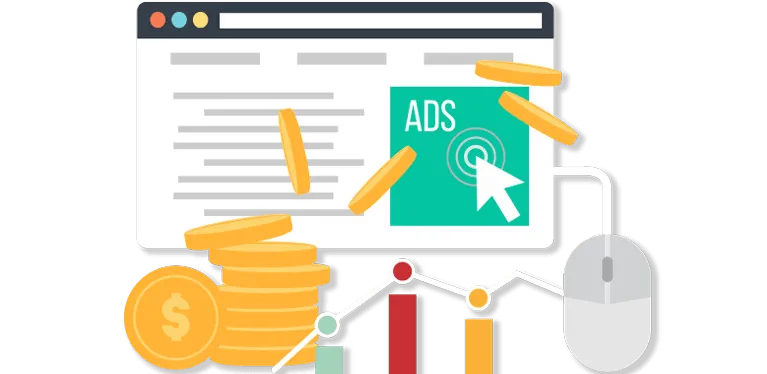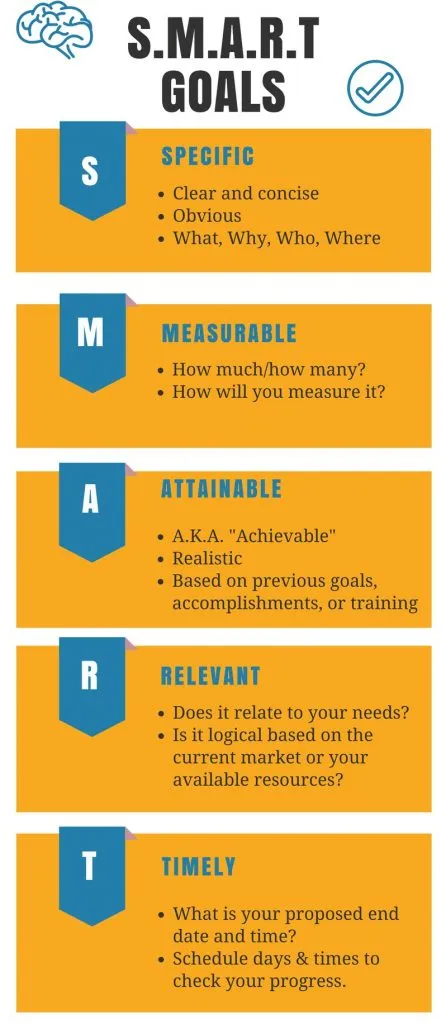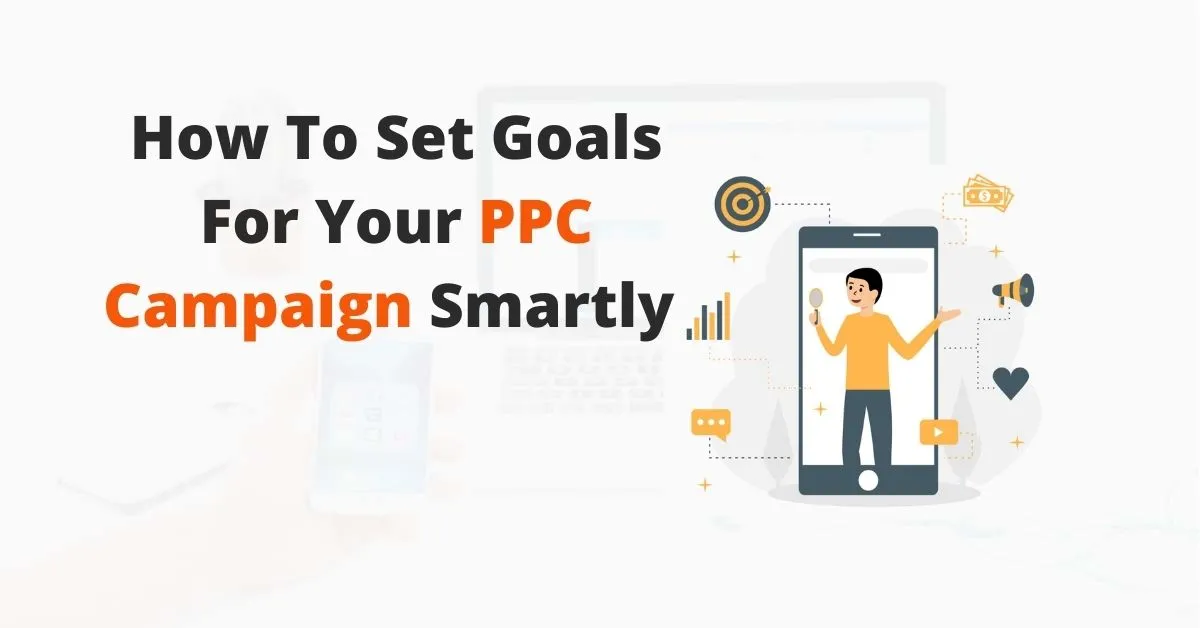For PPC Ads “Failing to plan…is Planning to Fail”
Running PPC campaigns and in particular, running them well can be quite complicated. You have to create ads, pay the advertising platform, and then start wishing it all turns out well. But is that the state you want to be in? Running unplanned PPC campaigns can be risky, almost like a gamble.
You dole out a lot of money hoping it comes back to you with a profit. This is why there is an underlying fear that nags those who choose to go for PPC campaigns.
You have to plan if you want to deliver profitable campaigns with high conversion rates. Planning includes assessing where you are right now, and determining where you want to be.
All businesses desire to drive more revenue, lower customer acquisition costs and increase ROI/ROAS. But, merely stating these “desires” as goals and objectives would not allow you to gauge the success of your marketing efforts.
Meticulous planning requires SMART goals that define success metrics after the PPC campaign. SMART objectives are crucial to PPC optimization and securing a high Return-on-Investment (ROI).
Businesses have suffered tremendously from poor planning or even worse no planning. While SMART planning before strategic or tactical business decisions delivered clear competitive advantage. Planning also manages performance by systematically tracking progress along the way to success.
What is PPC Campaign?
PPC stands for Pay-per-Click. It is a digital marketing approach which advertisers use to promote offers on various ad-platforms. Examples of these ad platforms include Google, YouTube, Facebook, Bing, or Yahoo. PPC is very effective and efficient in raising brand awareness and getting new leads.
PPC may dramatically increase brand awareness by consistently (and quite aggressively) keeping a business in front of its target consumers.
PPC Ads provide a great opportunity to precisely target your audience. The paid marketing tactics used to depend on the profile of the intended audience, as well as the desired impact, action, or output.
PPC targets a business-defined customer base whose profile matches an advertiser’s offer. If users on an ad platform or its partner websites get attracted to a promoted offer, they click on the ad placed before them. By clicking they enter a sales funnel as “interested leads”.
The ad-platform gets paid each time (and only if) a user “clicks” on a PPC advertisement. Ad impressions that don’t invite clicks do not incur a cost. The cost-per-click varies according to industry niche and selected keywords. Businesses compete with each other, bidding on specific keywords relevant to their niche.
This is why cost-per-click keeps varying from time to time for any set of keywords.
But great PPC management has to begin with goals. And those goals need to be SMART.

How Can PPC Boost & Grow Your Business?
PPC ad campaigns help you achieve your marketing goals by utilizing data science. The way PPC delivers rapid results is by honing in on your target market based on user data maintained by ad platforms.
Ad placement tools provided by Ad platforms assist in locating the best publishers or display networks. Advertisers may target warm traffic or customers already familiar with their brand or tap into cold traffic in an attempt to increase awareness and convert competitors’ customers with PPC Ads.
Advertisements appear in front of a precisely targeted, high-intent audience, enticing them to click. This happens particularly while users are exploring a solution that matches your offer. So whether you’re running a start-up or bringing a new product or service to market, PPC ads can work wonders for you.
Examples of the 3 most well-known PPC Goals are:
- Increasing brand awareness.
- Boosting site traffic by focussing on CTR.
- Acquiring more leads or getting more conversions or sales.
Why Is It Important to always set PPC Goals?
The answer to this question is fairly easy to understand. Goals represent key performance indicators, milestones, achievements, or standards that define success. Without setting goals it is difficult at best and impossible at worst, to track efforts or performance.
PPC campaigns executed without setting goals, can turn out to be very expensive and a complete waste of marketing efforts. Spending money on marketing without proper goals can sometimes spell disaster for a business.
How to Set Goals For Your PPC Campaigns
When developing your strategy for paid inbound marketing you must begin by clearly defining your business objectives. You must have a well-defined problem statement in front of you and know which gaps you intend to address with PPC Ads.
High-level strategic goals from PPC campaigns can include:
- Website visits or Traffic generation.
- Revenue increase in terms of sales volume.
- Revenue increase in terms of average basket size or average order value.
- Brand entrenchment or increase in brand share of preference.
- Lead generation, business inquiries profile registrations.
- Getting business inquiries.
- Build a list of qualified prospects.
Once you have defined strategic goals it is time to take a deep dive to define objectives at a more granular level. These objectives would be achieved by using a certain “combination” of tactics. It is important to note the use of the word “combination” here.
This is because independent techniques are well defined and best practices of PPC are more or less known. It is the “combination” of the various techniques and best practices that delivers successful tactics.
Carefully formulated and executed tactics may result in innovative PPC solutions leading to phenomenal CTR and a significant reduction in cost per conversion or acquisition. In order to arrive at these tactics, PPC goals must be SMART and established for the short as well as long term.
It is also imperative that the goals and objectives are output focussed, clearly communicated, and understood across the board before they are implemented.
Setting SMART Goals for PPC Marketing
In the context of goal setting the word ‘SMART’ (usually written in capital letters) stands for Specific, Measurable, Attainable, Relevant, and Time-bound.

To understand SMART goals from the perspective of PPC marketing let us take a look at an example.
Goal: To increase traffic on my website
SMART Goal: To increase traffic on my website by 10% over a period of 180 days starting from January, within a budget of $1000 using PPC Ads on Google, Bing, and Yahoo.
Now you need to communicate how this increase in website traffic will impact your business goals. You need to know exactly where you stand at the beginning of your attempt at achieving the SMART goal.
You should know the details and limitations of your business model and sales funnel. You should have a clear picture of revenue, operating costs, and profit.
You should have your customer’s journey well defined and mapped. You should also be as sure as possible about your target market.
Once you have all these in place and well-defined, you are ready to go. All you need to steer your efforts along the way is a control document to evaluate/analyze data and capture information and tools to track your progress.
Final Words
PPC is a fantastic digital marketing strategy for quickly boosting or sustaining growing a business. By focussing on converting or high commercial intent keywords, keeping tabs on negative keywords, and continuously optimizing Ad Copy and landing pages you can work wonders.
But, to masterfully execute and track a PPC campaign it is necessary to have a well-thought-out and SMART plan of action. Otherwise, you or your clients could be heading towards abject disappointment. Happy Marketing!


 +1 (253) 528-4057
+1 (253) 528-4057  +966 507438993
+966 507438993 
